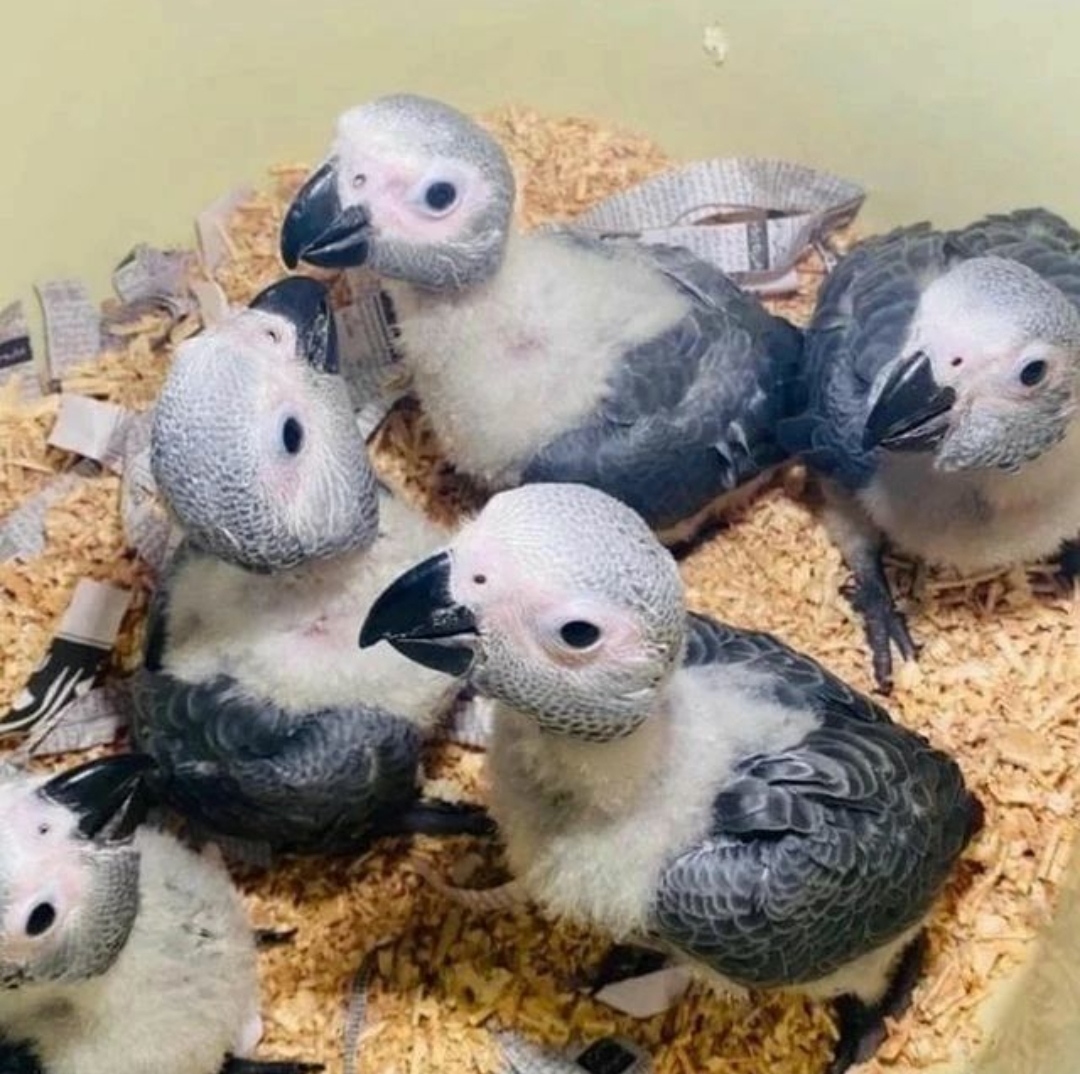Newborn African Grey Parrot, The newborn African Grey Parrot is one of the most intelligent and captivating birds in the avian world. Known for their exceptional talking ability and emotional sensitivity, these parrots require specialized care right from birth. If you’re considering raising one or are already the proud owner of a newborn African Grey, this article will help you understand their needs, growth stages, and how to give them the best start in life.
Understanding the Newborn Stage
A newborn African Grey Parrot is typically hatched featherless, blind, and completely dependent on its caretaker. In this vulnerable stage, warmth, proper nutrition, and a clean environment are crucial. They cannot regulate their own body temperature and must be kept in a brooder with a constant temperature of 95°F (35°C), gradually reduced as they grow.
Nutrition: Hand-Feeding Essentials
Feeding a newborn African Grey Parrot requires precision and patience. In the first few weeks, a commercial hand-feeding formula specifically designed for parrots is recommended. The food should be fed using a syringe or spoon, at a safe, warm temperature—not too hot, to avoid crop burns, and not too cold, to prevent digestion problems.
Feedings are frequent, often every 2-3 hours, including during the night in the earliest days. As the chick grows, the interval between feedings can be extended and the formula thickened.
Growth and Development Milestones
- Week 1–2: Eyes remain closed, body is pink and naked, weight increases daily.
- Week 3–4: Eyes start opening, pin feathers emerge, and they begin to show more awareness of their surroundings.
- Week 5–6: They start to preen, develop coordination, and begin standing.
- Week 7 onward: Weaning begins; they learn to eat soft foods and start exploring more.
Regular weight monitoring is essential to ensure healthy development.
Socialization and Bonding
From a young age, African Grey Parrots need to be gently handled and spoken to regularly. This helps them build trust and develop into well-adjusted adult birds. Socialization is key to preventing future behavioral issues such as biting or feather plucking.
Health Considerations
Newborn African Grey Parrots are prone to infections and other health issues due to their undeveloped immune systems. Always maintain a hygienic feeding environment, sanitize equipment, and consult an avian vet if you notice symptoms like:
- Lethargy
- Refusal to eat
- Swollen crop or abnormal droppings
Final Thoughts
Raising a newborn African Grey Parrot is a rewarding but serious commitment. With proper care, patience, and love, these intelligent birds can grow into loyal and affectionate companions that live for decades. Whether you’re a breeder or a bird enthusiast, understanding their early needs is the first step toward a healthy and happy life for your African Grey.

